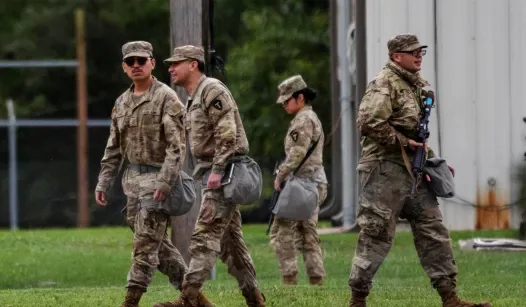In a significant legal development, the Seventh Circuit Court of Appeals has blocked the Trump administration’s plan to deploy National Guard troops to Chicago. This ruling comes amid increasing challenges to similar deployments in various states, prompting the administration to escalate the matter to the Supreme Court.
The decision by the Seventh Circuit highlights ongoing tensions between state and federal authority, particularly regarding the use of military resources for domestic law enforcement. The court’s ruling reflects concerns over the implications of such deployments on civil rights and local governance.
As the Trump administration prepares its appeal, the implications of this case extend beyond Chicago. It raises critical questions about the balance of power in addressing crime and public safety, especially in urban areas facing significant challenges. The outcome of this legal battle could set a precedent for how federal resources are utilized in state matters and the extent to which the federal government can intervene in local affairs.
The situation in Chicago has garnered national attention, with many citizens and local officials expressing their views on the appropriateness of deploying National Guard troops in response to crime. Proponents argue that additional resources are necessary to combat rising violence, while opponents raise concerns about militarization and the potential for civil liberties violations.
As the legal proceedings unfold, the public will be closely watching how the Supreme Court addresses the complexities of this case. The decision could not only impact Chicago but also serve as a bellwether for similar situations across the country, shaping the future of federal involvement in local law enforcement.
In the coming weeks, as the Supreme Court reviews the appeal, discussions surrounding the implications of military involvement in civilian matters will likely intensify. Stakeholders from various sectors, including law enforcement, civil rights organizations, and community leaders, will continue to advocate for their positions, emphasizing the need for a balanced approach to public safety that respects both order and individual rights.
The Seventh Circuit’s ruling and the subsequent appeal to the Supreme Court underscore the dynamic and often contentious relationship between federal and state powers in the United States. As this story develops, it will be crucial for citizens to stay informed about the legal arguments presented and the broader implications for governance and civil liberties in their communities.
